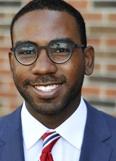
Editor’s Note: This article originally appeared in “The Millennials Perspective” issue of Green Money Journal. Click here to view more posts in this series.
By Julius Tapper
As you may have noticed, there's a theme to this issue of GreenMoney. As I write this article, featured as a "millennial voice," I can't hide a small smirk of irony. I grew up hating labels. Or, more diplomatically put, I had a strong aversion to them – especially my own. As a kid, my labels made me uncomfortable; black, gay, nerd. By definition, they were accurate, but they didn't seem to fit. They felt limiting and prescriptive; they came with baggage that wasn't my own. I felt my individuality, my identity, was undercut by my group affiliations.
My perceived stereotypes of “gay” and “black” were incongruent with my desire to be socially accepted and professionally successful. Inhabiting my intersection of race and sexuality was also difficult; Jamaica (where my parents are from) has a notoriously homophobic culture. In response to the tension between my identities, I retreated from them. When I stopped running from – and turned to examine – my ascribed labels, I found community, culture, and stories with personal resonance. I came to acknowledge that my individuality is enhanced by the intersectionality of my identities, and the history they bring. Frankly, I'm now quite proud of my labels, and they are an active and living part of who I am. Maya Angelou's recent passing, for me, reinforced one of her most poignant lessons: "I go forth alone, and stand as ten thousand," and I call on those tribes often.
Having been called on as a millennial to share my story for this article, I'm a little less suspicious of the label, and a little more interested in exploring what it means to me and what it might mean for the investment community. All of this talk of identity may seem a little sentimental for an investment publication, but I argue that identity will be a critical consideration for the investment community going forward.
We millennials have experienced a lot in our short lives. As Jed Emerson and many others have noted: "[We] have experienced major boom and bust periods, including the prosperity of the 1990s dot-com frenzy, and the financial markets’ collapse in 2008 and subsequent recession … [We] witnessed 9/11, the Arab Spring, long wars in Iraq and Afghanistan, multiple terrorist attacks, and dramatic political division…" I'll throw in climate change for good measure. Amid this external turbulence and uncertainty, the existential "quarter-life crisis" is a cultural trope of the millennial generation.
I expect a lot of change in my life. For me, the search for stability turns inward, trying to sort out conceptions of meaning, purpose and values to distill some sort of personal terra firma. Though this exercise is self-reflective, it is also social. My most memorable and engaging conversations have often been about these issues. It's also interesting to note how often these abstract conversations become very concrete. What do I want from my career? How do I want to spend my time and energy? How do I want to invest my resources?
In 2009, I started my career at TD Securities, TD Bank Group’s capital markets division. It was a dynamic time to begin my training as a banker. Not only were regulations changing, but also expectations; how could the industry be different, how could it be better?
After three years in traditional finance, I was looking for something different from my career. Here, my identity played a pivotal role in my career trajectory. On May 17, 2012, TD launched its "It Gets Better" video contribution to combat homophobia. TD strives for a culture where you are encouraged to bring your full authentic self to work; the video brought this to life for me in a very visceral way (read tears). I appreciated the power of bringing yourself to work, but it also drove me to bring my full self to my work. I wanted to carry personal authenticity and alignment across my life, and I wanted to make intentional decisions in pursuit of those ends. For me, it was the decision to make a transition to a career more focused on 'impact' – positive social and environmental outcomes.
Read the complete article here.
Julius Tepper is Manager of Social Finance at TD Bank Group, where he is leading the development of TD’s social finance and impact investing strategies, recently coordinating the launch of TD’s inaugural $500 million Green Bond. Julius also helps manage TD’s venture philanthropy and financial literacy initiatives. You can find Julius on Twitter @juliustapper.
TriplePundit has published articles from over 1000 contributors. If you'd like to be a guest author, please get in touch!














